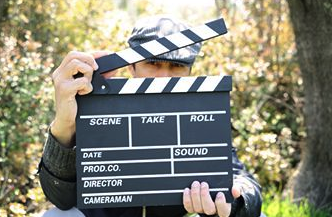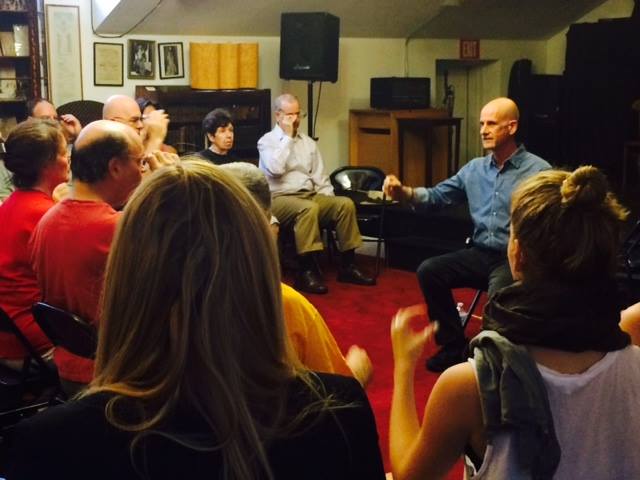
“With good humor, specificity, and charm, Mark makes a challenging technique accessible and fun!”
-Kyra Sedgwick, Emmy-winning actress (“The Closer”)
“I can immediately tell the difference between actors who have studied the Alexander Technique, and those who haven’t”
-Sam Mendes, Academy Award-Winning Director (American Beauty, Road To Perdition, Skyfall) at one of our recent Alexander lessons in New York.
————————————————————————————————————————
Working with the Alexander Technique and actors is similar to working with non-actors with a few significant differences. As with singers, or others who use their voice professionally, the actors’ body is his/her instrument. If you habitually tense your instrument it stands to reason that you will have less control, and be less spontaneous, flexible, and expressive. Additionally, neck pain or back pain stemming from poor posture is something we all want to avoid.
Actors I’ve worked with have told me that after our Alexander Technique lessons they’re better able to approach roles and auditions with a blank slate. From that neutral place they are more able to question: Might this character have ‘good posture’? The Alexander Technique trained actor will achieve that without appearing stiff. Might the character slouch? They can do that also, but in a way that won’t hurt their neck, back, or voice. One can appear to be slouching, yet do so in a way that won’t be harmful. That same awareness can be developed while walking, sitting, standing, bending, gesturing, and all other movements on and off-stage.
Stress affects the actor and the non-actor as well, especially in large cities such as New York. Excess tension also affects the actor during the course of the day while doing everyday activities. The Alexander Technique addresses stress and it’s affect on breathing.
The stress level of this city, or other large cities is so high, combined with the tension of the ‘self employed’ aspect inherent in the arts, adds to the actors’ stress both on and off the stage. The Alexander Technique helps the actor become aware and release this extra tension anywhere, anytime.
“The Alexander Technique teacher can help the actor with both self-discovery and character discovery. A character has to evolve out of the actor’s mind, body and emotions; reside there truthfully and experience the story of the play or film, moment by moment…You simply cannot learn the Alexander Technique from a book. You can read about the concepts and principles of Alexander work, but at some point it is absolutely necessary to engage with a trained and certified Alexander Technique teacher.”
-The Actor And The Alexander Technique by Kelly McEvenue
“The Alexander Technique helped a long standing back problem, and to get a good night’s sleep after many years of tossing and turning.”
-Paul Newman
“I find the Alexander Technique very helpful in my work. Things happen without you trying. They get to be light and relaxed. You must get an Alexander Teacher to show it to you.”
-John Cleese
“The many benefits that the Alexander technique afforded us as actors included minimized tension, centeredness, vocal relaxation and responsiveness, mind/body connection, and about an inch and a half of additional height. By balancing and neutralizing tensions, I’ve learned to relieve as well as to avoid the aches and pain caused by the thousands of natural shocks that flesh is heir to.”- Kevin Kline
“The greater the actor’s sensitivity and awareness of his body, the wider the range of choices or responses he can make for himself and his characters.” Kelly McEvenue-The Actor And The Alexander Technique
Mark Josefsberg-Alexander Technique NYC
(917) 709-4648










Wether these actors are doing the technique on a general basis or specific basis?
Hi Rajeesh,
How do you do the Alexander Technique on a specific basis?